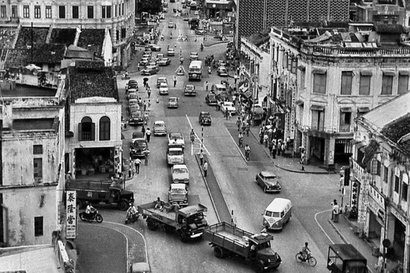17th September 1970 Incident (Minahodun)
| 17 September Incident Peracrita Kudut-Tuchung Labuh Benih | ||||
|---|---|---|---|---|
 Truck convoy of the Minahan Army. | ||||
| Date | 17 September 1970 | |||
| Location | ||||
| Caused by | Public outrage by the native Borgoenon citizens that never received full recognition and rights after joining with the Democratic People's Republic of Minahodun | |||
| Methods | Widespread rioting, protesting, arson, assault, murder | |||
| Resulted in | Declaration of a state of emergency by the Paenghulu Otama.
| |||
| Parties to the civil conflict | ||||
| ||||
| Lead figures | ||||
| ||||
| Casualties and losses | ||||
| ||||
The 17 September Incident was an event of Sorawakian-Borgoenon sectarian violence that took place in the city of Kuta Masilau, the capital city of the Democratic People's Party of Minahodun, and Trisakhti Wijaya, which later became the capital of the United Republic of Minahodun. The riot took place after the recent unification of the Borgoeno Island into Minahodun alongside Sorawak, but the Borgoenon people never received equality within the country, which lead to some protesting for better rights alongside autonomy, while others decided to break away and form the Borgoenon People's Sword Army to take down the Minahan government and wanted to change it into an authoritarian regime.
Official reports estimate the death rates at 234 peoples, but others speculate that the death toll could've reached almost 300, or higher, with most victims being ethnically Borgoenon. The racial riots caused a declaration of a state emergency by the Paenghulu Otama. A short-lived military junta council known as the Salvations Operational Council for Peace of Minahodun was established as a caretaker government to temporarily govern the country and hunt down for Anti-Unificationists.
The event plays an important role in Minahan history as it forced the then premier, Fathikunan Ganajaya, to step down from office. Kairin Keffran Hamadon later assumed office as premier and implemented the Keffranist Economic and Social System, an ideology coined by him which mixed ideas such as a democratic socialist state, with separation of religion from the government, feminism and liberalism. He is also the founder of the UNSATU party. His ideology was never removed from the new constitution and remains as the dominant ideology until today.